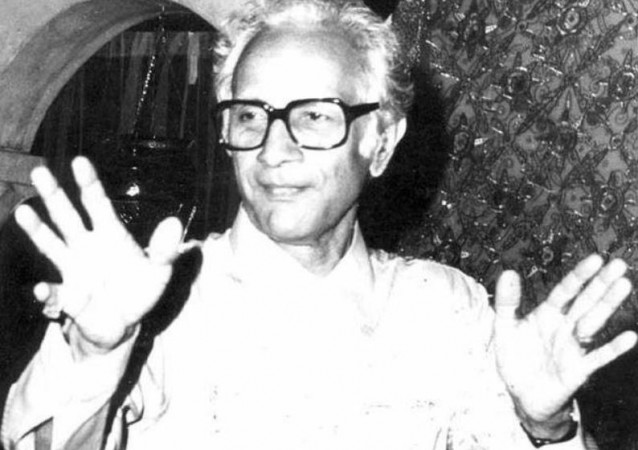
Dev Anand is remembered as an iconic and charismatic actor in the history of Indian cinema. His films are beloved for their whimsy, romance, and classic tunes. Nevertheless, just like any other form of art, cinema is subject to changing artistic sensibilities and tastes. In this article, Chetan Anand, a well-known filmmaker and Dev Anand's brother, is discussed in relation to a significant and memorable incident that occurred on the sets of the Hindi film "Funtoosh" one day. The two had a heated argument and Chetan Anand left the set. In this incident, a conflict between cinematic ideals was brought to light when Chetan Anand expressed his desire to make films with real stories and issues, in stark contrast to the era's hero-and-heroine singing and dancing formula.
In 1956, Dev Anand was in the prime of his career after becoming recognised as the archetypal romantic hero of Hindi film. His older brother Chetan Anand was equally talented, but he had very different aesthetic tastes. On the set of "Funtoosh," a movie they were working on together, the tension between the two reached a breaking point.
The visionary director Chetan Anand, who created timeless works like "Neecha Nagar" and "Afsar," had a burning desire to create films that explored important social issues, delves into complex characters, and shows the struggles of everyday life. At the time, he believed that Indian cinema was mired in a formulaic rut, with most of the films' attention going to the hero and heroine performing and dancing in picturesque settings.
Dev Anand, the dapper and charismatic actor, on the other hand, was beloved by the general public. He was a firm believer in the allure and allure of escapist cinema, where entertainment and romance were the main attractions. He was the epitome of the endearing hero who made hearts flutter with his screen presence, and for him, films served as a means of escape from the harsh realities of life.
One crucial day on the "Funtoosh" sets saw the peak of the conflict between the two brothers. According to Dev Anand's definition of cinema, the movie was a love story musical comedy. However, as the movie's director, Chetan Anand, became more and more frustrated with the course it was taking, he found himself.
Chetan Anand confronted his brother and the movie's producer, Vijay Anand, about his concerns. He claimed that Dev Anand's films were not his preferred style of cinema. Chetan Anand yearned to direct films that dealt with important topics and provided a nuanced view of society. He desired for his films to evoke deep emotional responses from the audience.
It was clear how frustrated Chetan Anand was. He thought that the hero-and-heroine formula did Indian cinema's potential a disservice. His approach to filmmaking was more in line with the work of directors like Guru Dutt and Bimal Roy, who were renowned for their emotionally charged and socially relevant stories.
Chetan Anand made a significant choice as the dispute heated up. He declared that he was not Dev Anand's kind of director and that he would no longer be able to compromise on his artistic values. Chetan was fed up with the ideological disagreements and creative disagreements that had hampered the creation of "Funtoosh."
He then turned to face Vijay Anand, pleading with him to leave the movie alone. Both the Anand family and the industry were shocked by this abrupt and unexpected departure from the set of the movie. It was a moving scene that highlighted Chetan Anand's artistic vision's unwavering nature.
A turning point in the development of Indian cinema occurred when Chetan Anand left the "Funtoosh" sets. It symbolised the widening gap between two talented brothers who, despite having different artistic goals, were still deeply separated from one another.
Eventually, "Funtoosh" was finished without Chetan Anand's assistance, and it was successful commercially thanks to Dev Anand's star power. On both brothers, though, the incident had a lasting effect. In contrast to Chetan Anand, who went on to make films like "Haqeeqat" and "Aakhri Khat," Dev Anand continued to make films in his distinctive style.
The conflict between Chetan Anand and Dev Anand over cinematic ideals on the "Funtoosh" set was a turning point in Indian film history. It brought attention to the tension between escapism in film and socially conscious storytelling, two crucial but frequently at odds elements of the business. Chetan Anand's decision to leave was a sign of his unwavering dedication to his artistic principles and had a lasting impact on the course of his professional career as a director. Despite the fact that the two brothers may have taken different paths in life, their contributions to Indian cinema are still relevant and significant today, reflecting the wide range of cinematic expression found in the biggest film industry in the world.
How to Stay Fit at 49: Hrithik Roshan Reveals His Secret
Khushbu Sundar: Celebrating the Iconic South Indian Actress on Her Birthday
Anant Chaturdashi: Indore Gears Up for a Night of Extravaganza and Devotion